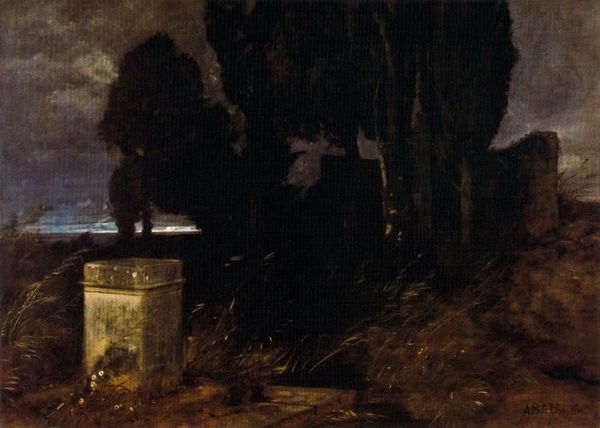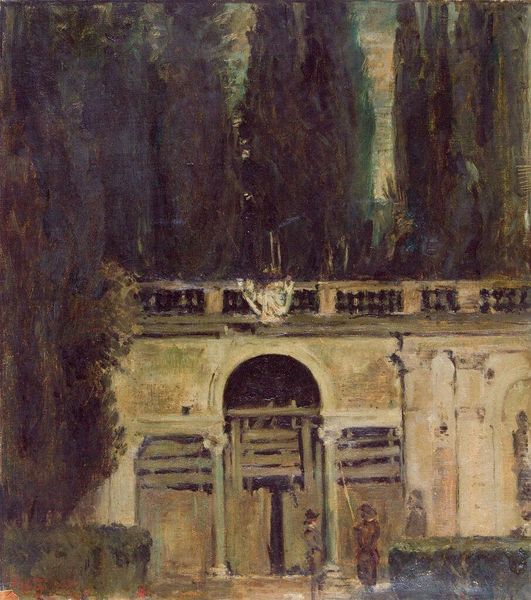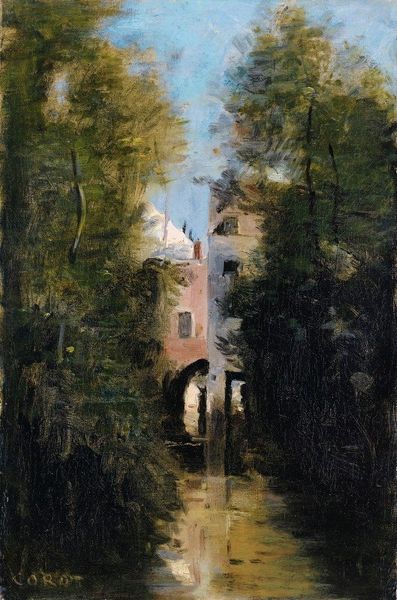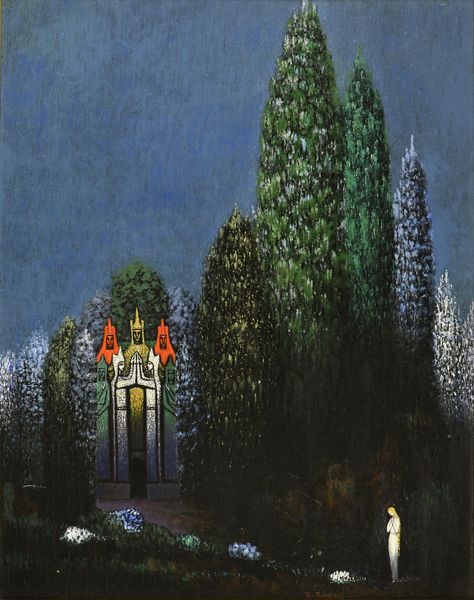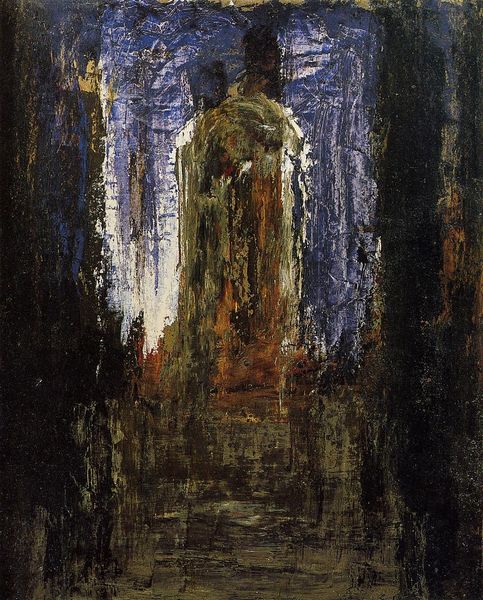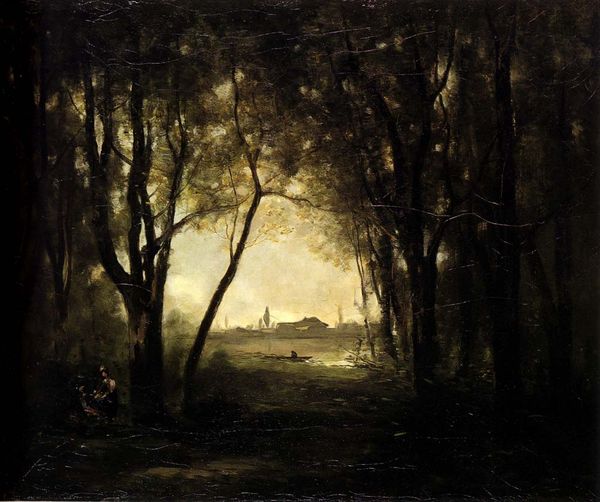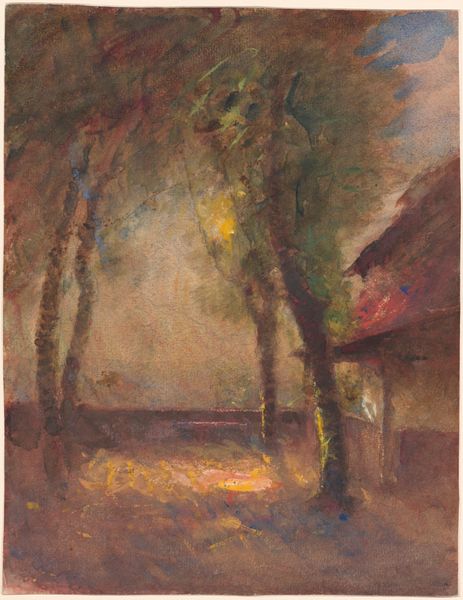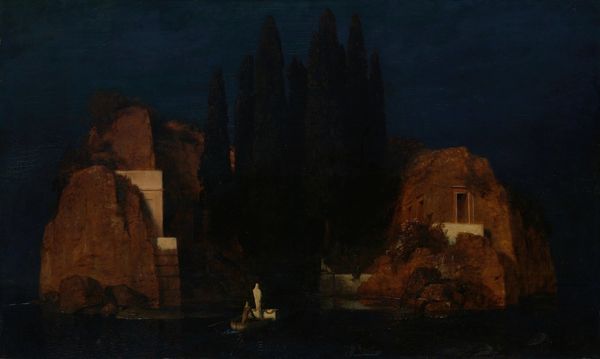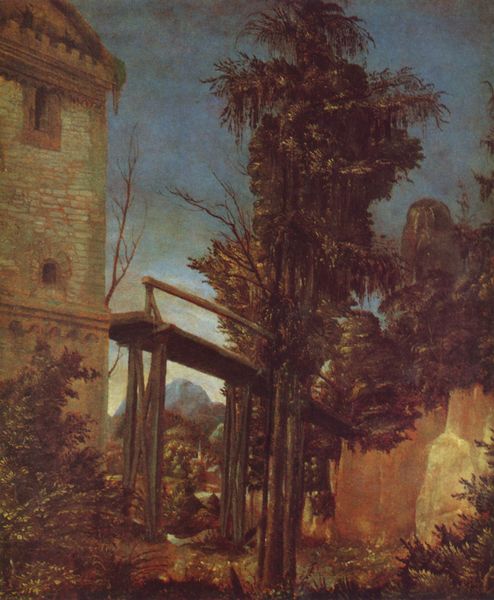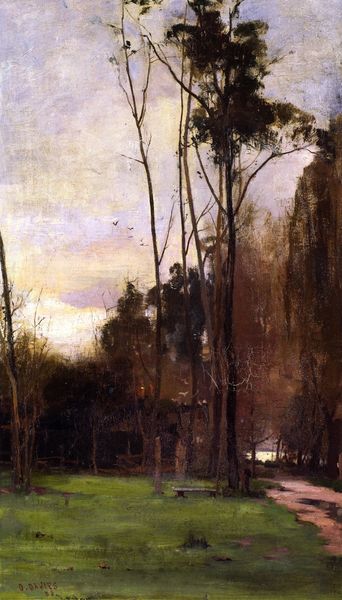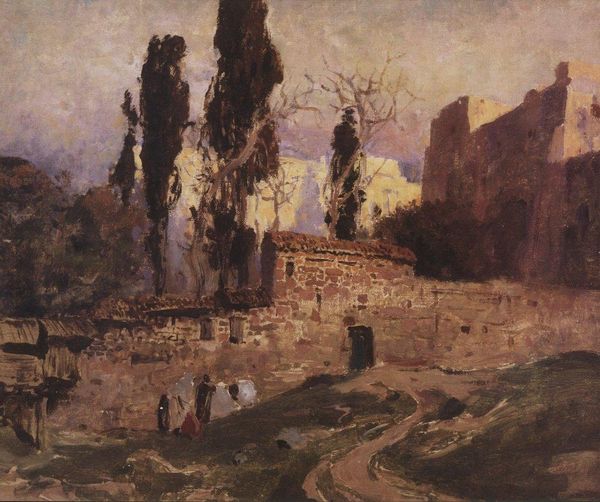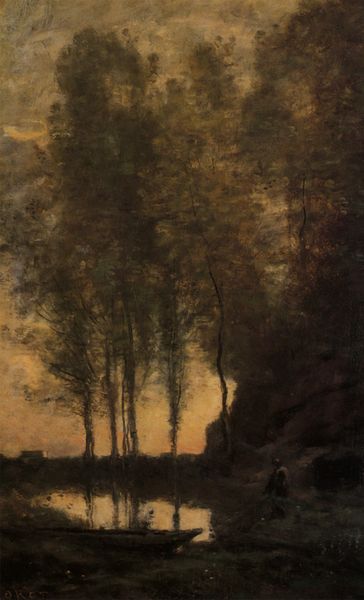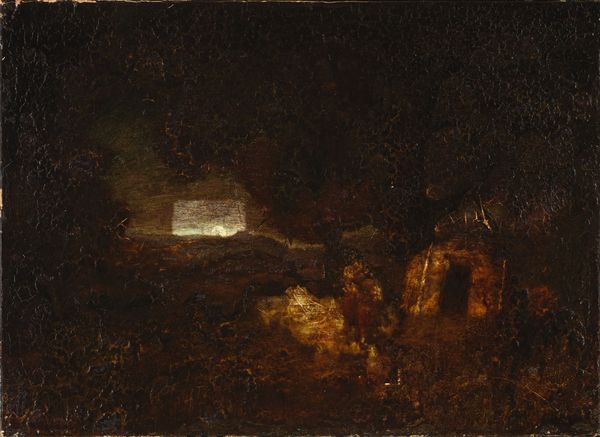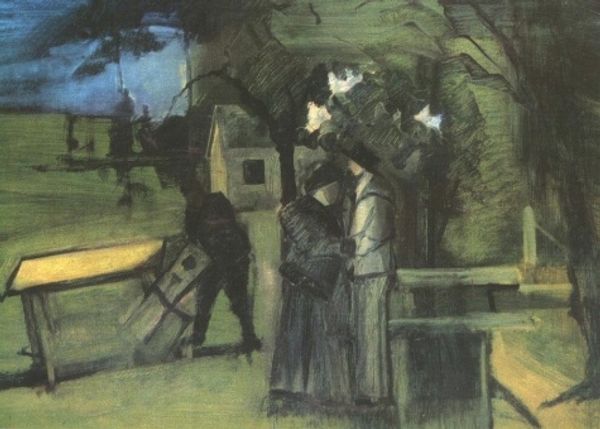
Dimensions: 108 x 75 cm
Copyright: Public domain
Editor: So, here we have Henryk Siemiradzki's "Departure from an Island at Night," painted in 1890. It’s an oil painting and the colors create such a somber mood... Almost unsettling, don't you think? I'm particularly struck by the way the light flickers on the water. What do you see in this piece? Curator: The prevalence of the night as a symbolic setting cannot be ignored. Darkness itself can symbolize the unknown, transition, or even death. Think of how the single point of light emanating from the building acts like a beacon, juxtaposed against the figures' departure, indicating a potential severing of ties with what is familiar. What does this light suggest to you, given the title? Editor: It's almost as if the light represents memory or a past they're leaving behind... the darkness feels more permanent. The boat feels like the transition. Curator: Precisely. Boats and ships have carried symbolic weight across cultures – vessels of passage between worlds, journeys of transformation. And water, ever-changing and reflective, represents the subconscious, the flow of time. What kind of emotions do the people in the boat seem to express by their actions, would you say? Editor: They appear to be embracing, a gesture that might represent hope or comfort in the face of the uncertainty they must be facing, I’d assume? But that hope does not erase the feeling of deep sadness somehow… Curator: Indeed. This juxtaposition is crucial. Siemiradzki has woven a visual tapestry of farewells, transitions, and the interplay between memory and the unknown. It reminds us that journeys, whether literal or metaphorical, involve leaving something behind as we navigate toward what's to come. Editor: It makes you wonder what kind of a world they're venturing to as opposed to the home they leave behind here, even makes you want to think about what kind of 'home' this painting can conjure. I didn’t even expect a landscape to be able to do all this... Thanks for showing me such a different way of reading landscapes! Curator: It's fascinating how images condense these complex human experiences isn’t it? There is just a vast cultural knowledge stored in them for those who learn how to see it.
Comments
No comments
Be the first to comment and join the conversation on the ultimate creative platform.
